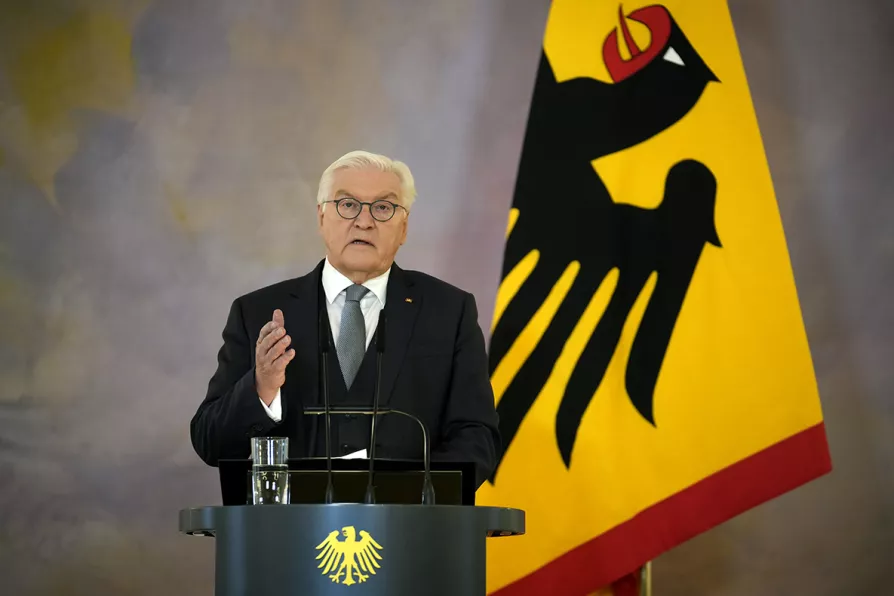German parliament dissolved and new elections set for February 23

 German President Frank-Walter Steinmeier announces the decision to dissolve the German Bundestag and schedule a new election for February 23 next year, in Berlin, December 27, 2024
German President Frank-Walter Steinmeier announces the decision to dissolve the German Bundestag and schedule a new election for February 23 next year, in Berlin, December 27, 2024
GERMAN President Frank-Walter Steinmeier ordered the dissolution of parliament today and set new elections for February 23 following the collapse of Chancellor Olaf Scholz’s governing coalition.
Mr Scholz lost a confidence vote on December 16 and leads a minority government after his unpopular three-party coalition fell apart on November 6 when he sacked finance minister Christian Lindner in a dispute over tackling Germany’s stagnant economy.
Leaders of several major parties then agreed that a parliamentary election should be held on February 23, seven months earlier than originally planned.
Similar stories














